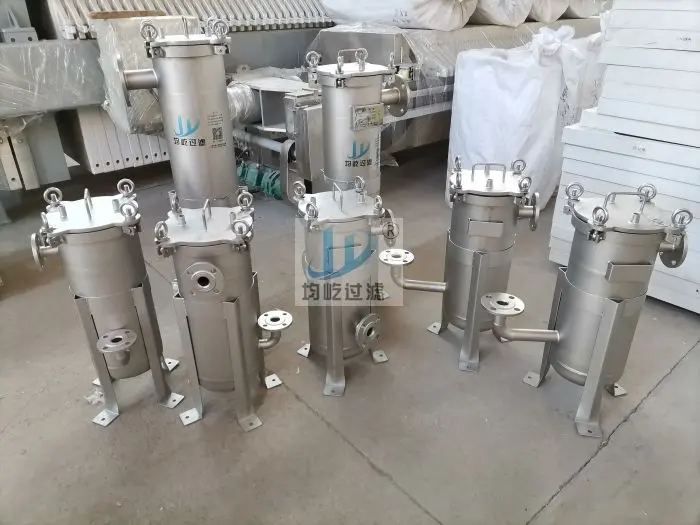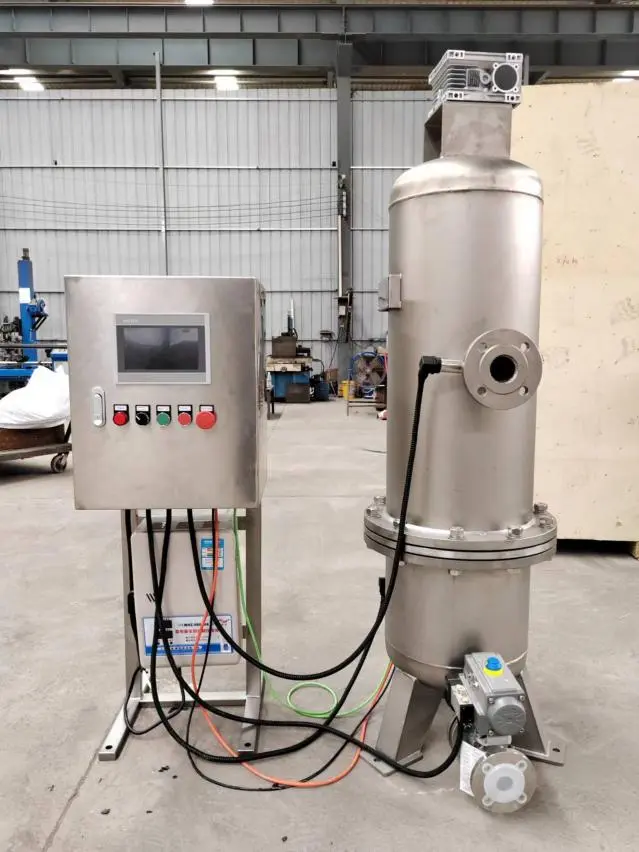
Common filters include bag filters, basket filters, filter cartridges, self-cleaning filters, and backwash filters. The key to choosing a filter that suits your needs is to clarify the characteristics and applicable scenarios of different filters in order to match actual needs.
1、Consider liquid flow rate: Bag filters and basket filters can handle larger flow rates; The flow rate of the filter element is relatively small, but there are also multiple specifications to choose from; Backwash filters and self-cleaning filters can achieve continuous filtration at high flow rates. For example, in large-scale chemical production where liquid flow is high, bag filters or backwash filters can be chosen; Laboratories or small production lines have low flow rates, and filter cartridges are more suitable.
2、Consider filtration accuracy: Bag filters and basket filters are usually 1-10 microns; The precision of the filter element is high, reaching 0.5-100 microns; The precision of self-cleaning filters is usually between 20-200 microns, while the precision of backwashing filters is generally between 0.5-200 microns. If it is an industry with extremely high impurity requirements such as pharmaceuticals and electronics, filter cartridges may be more suitable; If it is for coarse filtration of general industrial water, basket filters or bag filters can meet the requirements.
3、Consider material characteristics: If the material is corrosive, the bag filter can choose corrosion-resistant filter bag material, and the filter element filter can choose corrosion-resistant filter element materials such as polytetrafluoroethylene. Basket filters, backwash filters, and self-cleaning filters can be made of corrosion-resistant materials such as stainless steel. At the same time, the viscosity of the material should also be considered. High viscosity materials can affect filtration speed, and bag filters and filter cartridges may require larger filtration areas or higher pressure differentials. Among basket filters, backwash filters, and self-cleaning filters, backwash filters or self-cleaning filters may be more suitable for high viscosity materials.
4、Consider operating and maintenance costs:Bag filters require regular replacement of filter bags, while filter cartridges require replacement of filter cartridges. The consumables cost for these two types of filters is relatively high. If durable components such as filter screens are used for basket filters, backwash filters, and self-cleaning filters, the frequency of replacement is lower, which can reduce consumable costs in the long run. Meanwhile, backwash filters and self-cleaning filters require a certain amount of electricity to drive the cleaning device and control system due to their automatic cleaning function, resulting in relatively high energy consumption. Bag filters, basket filters, and filter cartridges typically have no additional power consumption and lower energy consumption. If the existing production system has a high degree of automation, choosing backwash filters or self-cleaning filters is easier to achieve centralized control and management. If it is a small intermittent production system, manually operated filters may be more economical and practical, and do not require complex automation control systems.

Junyi Copyright © 2025 ALL rights reserved